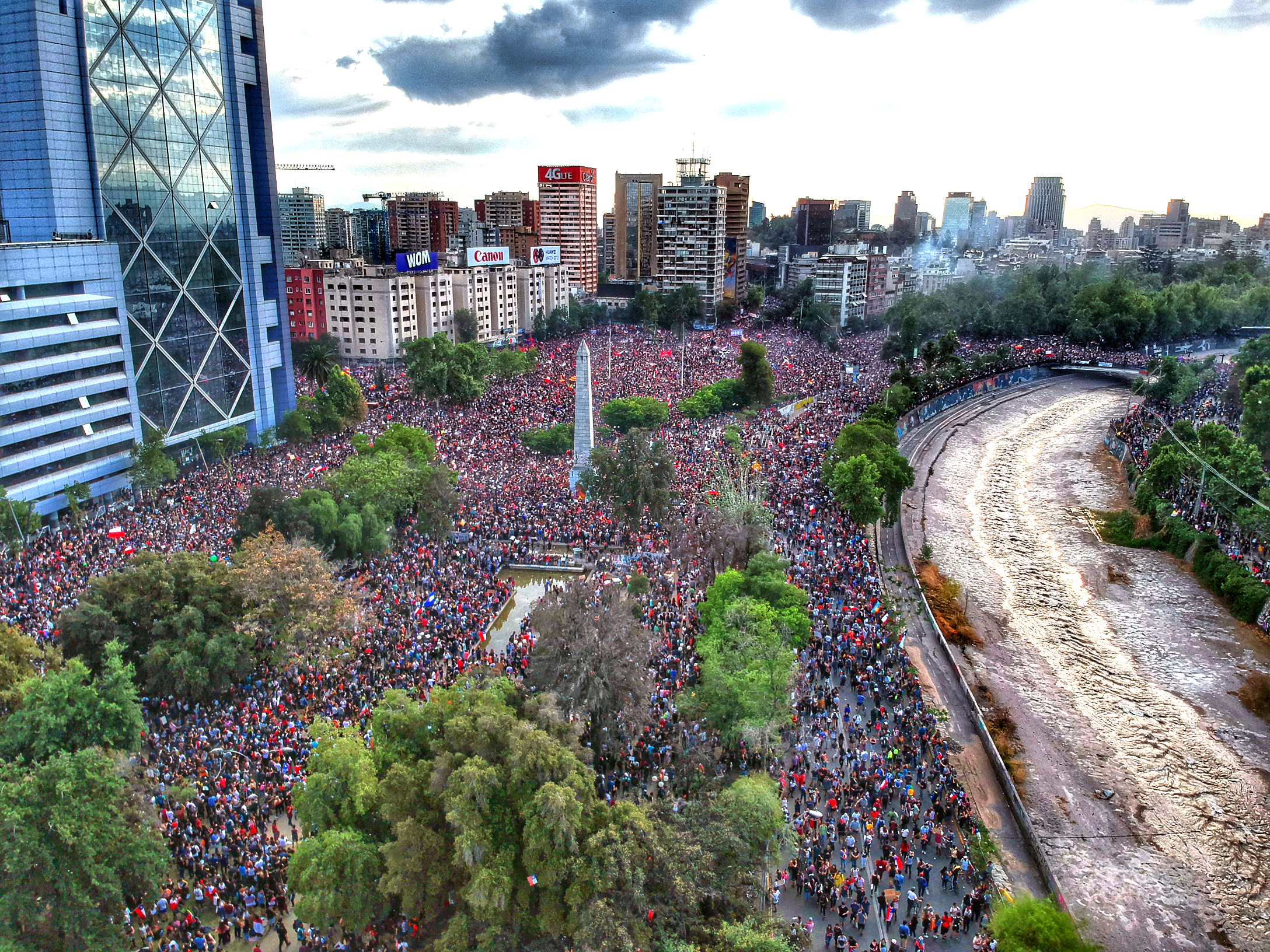Chile despertó – Chile woke up – is a key slogan oft he ongoing uprisings in Chile that began in the capital Santiago in October 2019. Since then, heavy confrontations happened with the regime of president Piñera. For the first time since the dictatorship that ended in 1990, the army was deployed and curfews were installed in an attempt to quell the unrest. Although the protests have disappeared from the title pages of most international media outlets by now, the protests are ongoing and a new wave of protests is lying in wait. A referendum about the constitution is to take place in April 26. Over these past five months, human rights organizations have counted 35 people dying in the context of these protests and more than 400 people severely wounded.
Chile is considered as one of the most unequal countries in Latin America and has a remarkable history of political contestation. In this episode, Azun Candina, a historian, and Daniel Opazo, an architect, both living in Santiago and working at the Universidad de Chile, describe the movement for us, point to its historical trajectory, focus on the urban dimension of the uprising, give us an idea of what has been achieved and what is still ahead of the movement.
Our guests:

Azun Candina
Azun is a historian and professor at the Universidad de Chile, who has dedicated her work to middle class studies, social identities and commons. In the past, she has also published about memory and human rights in the Southern Cone and South America in general.

Daniel Opazo
Daniel is an architect and professor at the Universidad de Chile. His research is on the making of public spaces, in terms of both architectural as well as political and institutional issues.
Photo credits:
“La marcha más grande de Chile” de 2019; De Hugo Morales – Trabajo propio, CC BY-SA 4.0, https://commons.wikimedia.org/w/index.php?curid=83460148

